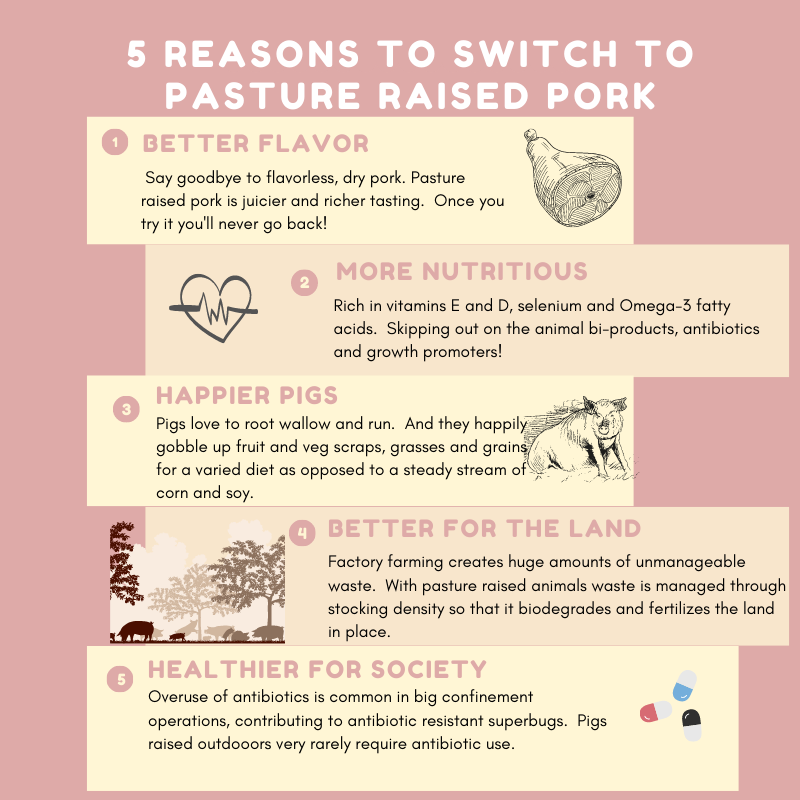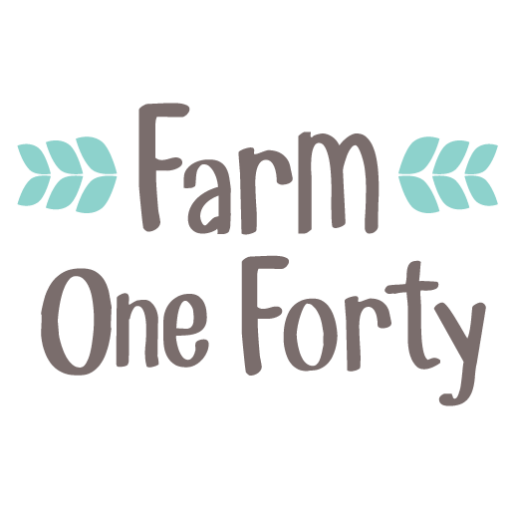
Pigs are natural omnivores; they can’t survive on grass alone like a cow or sheep but are designed to eat a little bit of everything. That’s why we refer to our pigs as “pastured raised” instead of “grass-fed” as we do our beef and lamb. The guiding principles are always the same; raise the animals in an ethical, compassionate way and give them a life (diet, habitat, etc.) that is most natural to them.
We give our pigs plenty of fruit and vegetable scraps, along with a mix of grain we grow and mill ourselves on the farm. In addition to this high-nutrient diet, they feast on the grass, legumes and roots that they scavenge in the pastures.
Pigs have the handy ability to convert vegetable and plant matter to the fatty acids EPA and DHA which reduce inflammation, reduce cardiovascular disease and promote good health for us when we eat pork. As you would guess, free ranging pork contains much higher concentrations of these beneficial fatty acids. Added bonus, there are no antibiotics, animal bi-products or growth stimulators given to our pigs!
Because pasture raised pigs spend a lot of time in the sun there is more Vitamin D in the fat than their barn raised counterparts. Did you know that pork lard makes the flakiest pie crusts? And with it’s high smoke point it’s great for all general cooking – pan frying, browning and baking, both sweet and savoury dishes.
We figure that by giving our pigs a healthy, outdoor, free-range life and a diverse, GMO-free diet, we’ll not only improve their health and quality of life, but also achieve an end product of the highest quality with a beneficial ecological impact. Oh and let’s not forget that it produces unusually tasty bacon!
Click here to order your pasture raised pork!

Comments (0)
Leave a reply
You must be logged in to post a comment.




